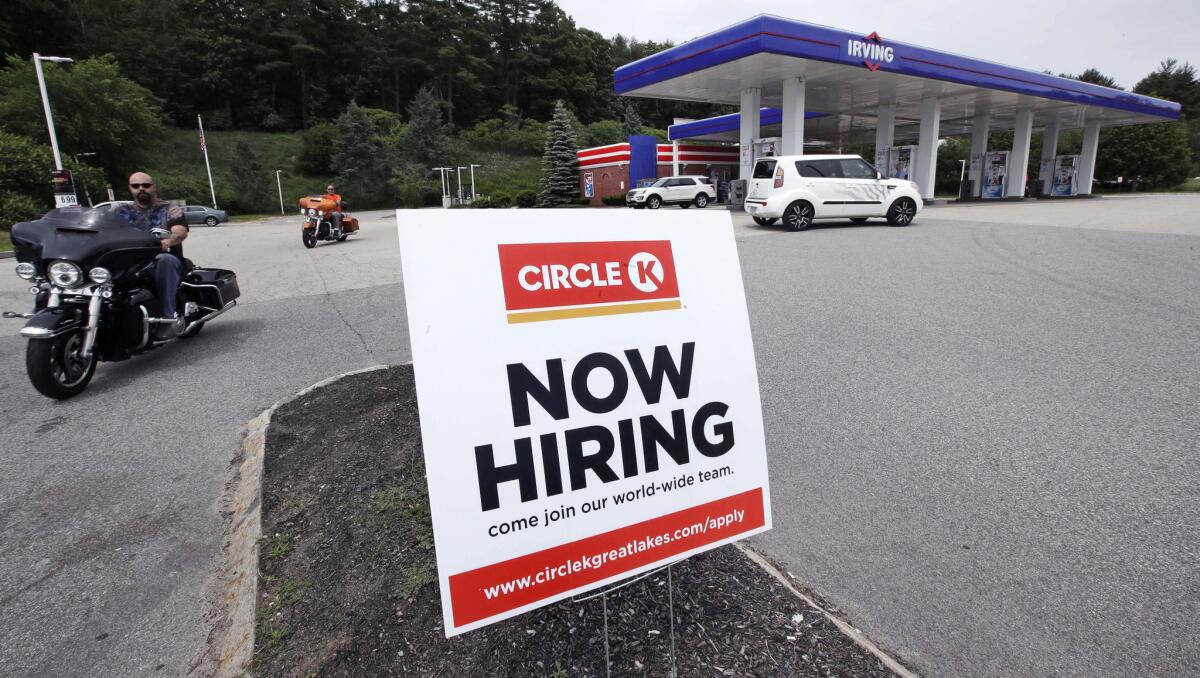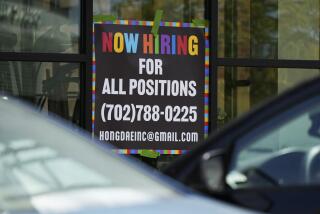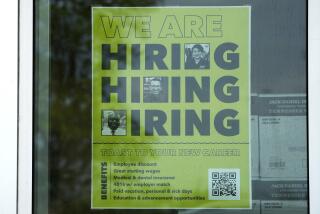American workers’ willingness to quit their jobs hits 17-year high

The proportion of American workers who quit their jobs in May reached the highest level in 17 years, a sign that more people are confident they can find a new job, probably at higher pay.
Businesses advertised fewer jobs in May than the previous month, but the tally of open positions still outnumbered the ranks of the unemployed for the second time in the last two decades, the Labor Department said Tuesday.
The figures reflect a strong job market driven by optimistic employers seeking to expand their workforces. Last week’s jobs report showed that businesses hired workers at a healthy pace and the unemployment rate remained very low, at 4%.
The share of workers quitting their jobs reached 2.4% in May, the highest level since April 2001. More quits are a sign of a strong job market because workers typically leave jobs for a new one that pays more. Workers who switch jobs see larger raises than those who stay in the same position, government data show.
There were 6.64 million available jobs in May, down 3% from April’s figure of 6.84 million, which was the most in the nearly two decades that records have been kept. At the same time, there were just 6 million unemployed people in May.
Nick Bunker, an economist at the job-listing website Indeed, calculates that there are now just 0.91 unemployed workers for each available job, also the lowest on record.
The need to compete for such a small pool of workers should force companies to raise pay in order to fill their open jobs, according to conventional wisdom, yet pay gains remain modest.
In June, average hourly earnings rose 2.7% compared with a year earlier. That remains below the roughly 4% annual gains that are typical of a healthy economy.
Faced with more open jobs than there are unemployed workers, businesses are becoming a bit less selective in their hiring, said Josh Howarth, president of the mid-Atlantic district for staffing firm Robert Half International.
“Companies are slowly but surely realizing that they have no choice but to be more flexible,” he said. If an applicant fits with a company’s culture and is highly motivated to learn, businesses are now more willing to train new hires to help them gain needed skills.
For example, one Robert Half client, a manufacturing firm in New York state, wanted to hire an accountant that could use software by German company SAP. Maureen Carrig, a Robert Half spokeswoman, said the company warned its client that finding applicants with that skill would be difficult, especially because of where the company was located.
The job sat open for three months until the firm relented and agreed to hire someone without SAP skills. The job was then quickly filled, Carrig said.
Still, Howarth said companies are moving more slowly than they did in the last strong job market, in the late 1990s. That probably reflects a lingering caution left over from the Great Recession, he said.
“Hiring processes have become longer and more thorough” in the past two decades, with more background checks and other steps. “That’s why you see so many positions not getting filled.”
More to Read
Inside the business of entertainment
The Wide Shot brings you news, analysis and insights on everything from streaming wars to production — and what it all means for the future.
You may occasionally receive promotional content from the Los Angeles Times.










